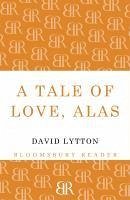Mr J, blind from birth, tells the story of his life and loves and peculiar friendships among the English colony at the Cape. His method is to imitate the random action of memory, choosing those episodes which reveal most clearly the strange elements of his society and his own eccentric response to them. He begins with a love affair that occupied a large part of his early manhood and distils from it a sad poetry of frustration. This calls to mind its opposite and he recounts his association with a rumbustious Coloured woman, epically large and loud, a reluctant abortionist, foster mother and, eventually, anarchist, dominating the slum in which she lives with her vivid personality. Against the life of the slums, he contrasts his own privileged upbringing, an only child in the care of his widowed mother and proconsular aunts attempting to impose an Edwardian order on the crude contours of their country life. He discovers in a dramatic incident the deep antagonism existing between Afrikanerdom and the English and, with a handful of friends, lives in increasing isolation from and amazement at the policies of the State. Although they are able to laugh at the ludicrous aspects of apartheid (Emergency Mark IV), one by one they are forced to leave the country. Eventually Mr J takes the same step and tells what it costs him.
Bitte wählen Sie Ihr Anliegen aus.
Rechnungen
Retourenschein anfordern
Bestellstatus
Storno









